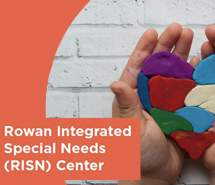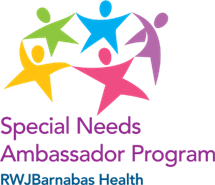Individuals with autism need more healthcare and get less.
Our quality of life can be impacted by many factors such as safety, housing, employment and social connectedness. One other important factor is physical health. Unfortunately, individuals with autism have lower physical health related quality of life and less than optimal health outcomes.
In fact, one study showed that autistic individuals’ mortality rates are as much as 5.6 higher than those without autism. In 2020, the National Indicators Report by A.J. Drexel Institute found that surveyed children with autism had higher rates of every listed health condition other than asthma. And despite more health concerns, more contact with healthcare providers, and higher expenditures they were more likely to have an unmet healthcare need.
Moreover, when they do access healthcare, they and their families are less satisfied with the interactions. Parents of children with autism consistently report not feeling that their voice is heard, a lack of understanding of their child and autism, and inadequate communication.
Healthcare Barriers
Why do individuals with autism experience such difficulties with healthcare access and health outcome disparities? Barriers to high quality healthcare exist at the patient, provider and system levels:
Individual
-
More likely to have fear and phobic responses and trouble tolerating medical procedures
-
Difficulties with communication and social interactions
-
Adherence to sameness and routine when many interactions with healthcare are novel, infrequent or unplanned
-
Hypo- or hyper-reactivity to sensory input in settings with many unusual sights and sounds
-
Learning history of challenging behaviors resulting in escape or avoidance of procedures
Provider
-
Lack of education and training in care of the autistic patient
-
Lack of comfort in caring for patients with autism
-
Culture of wanting to fix or cure
-
Layout and physical space of doctors’ offices and procedure rooms
System
-
Lack of continuity between providers, particularly transitions to adult care
-
Stigma
-
Lack of providers accepting public insurance
-
Insurance models do not allow for longer or additional appointments
These barriers impact healthcare access at multiple points.
| Preventative Some individuals with autism lack the skill and/or motivation to engage in healthy preventative behaviors such as brushing teeth, taking medicines and exercising. Routine preventative care, such as annual well visits, vaccines and bloodwork, can be a challenge as well. |
| Specialist Care In addition, many individuals with autism need a higher level of specialized care for co-morbid disorders; EEGs, bowel cleanouts, C-PAP machines, and surgeries are all examples of more invasive procedures that can be problematic for individuals for autism. Successful procedures often require a great deal of planning, support and individualized accommodations. Some families report being unable to even find a provider willing to accept their child. |
| Emergency Care Finally, individuals with autism experience more emergency room visits than those without autism. Emergency rooms present a significant challenge for individuals with autism; the unexpected nature of the visit, the sensory input of the setting, and the fast-paced action and communication can all impact the safety and quality of the care provided. |
Promoting Best Practices
The news is not all bad, however. Research and reporting on best-practices exists, and many providers are taking steps to improve the healthcare experiences and outcomes of individuals with autism. Novel approaches to medical and nursing school education such as through virtual reality are being explored to help providers improve their knowledge, comfort, and acceptance of caring for autistic patients.

Some hospitals, such as Hackensack Meridian Health’s pediatric hospitals, have begun to increase their ABA expertise by hiring behavior analysts to provide assessment and intervention for patients as well as education and support to hospital staff. In addition, Cooper University Hospital is a great example of a healthcare setting that is working diligently to improve education to all staff on autism-friendly practices and improve care responsive to patients’ sensory needs. Finally, some hospitals around the country and within New Jersey, such as RWJBarnabas, have developed patient assistance teams to help support individuals with autism and other behavioral concerns during hospitalizations.
What’s Next
Seizing on this urgent need, Autism New Jersey launched its Advancing Healthcare Initiative in 2022. This initiative has set an ambitious and important goal to improve access to high-quality compassionate healthcare for individuals with autism in New Jersey in meaningful and lasting ways. As part of this goal, we founded a first-of-its-kind interdisciplinary consortium focused on improving healthcare access, satisfaction, and quality for New Jerseyans with autism. Other early efforts of this initiative include the development of an ongoing Healthcare Experiences Survey open to continuously learn from the lived experiences of autistic individuals and family members, providing education to nursing students and to a large radiology provider, and promoting medical-behavioral collaboration through conference and grand round presentations.
We plan to continue our efforts to provide meaningful and credible information throughout the autism and healthcare communities as well as use our Power of Connection to serve as the collective voice in improving the health and wellbeing of individuals with autism.
Learn more about our priorities
Experience Our Power of Connection
Our 800.4.AUTISM Helpline is always available to provide support and resources while you navigate your child’s healthcare needs.


